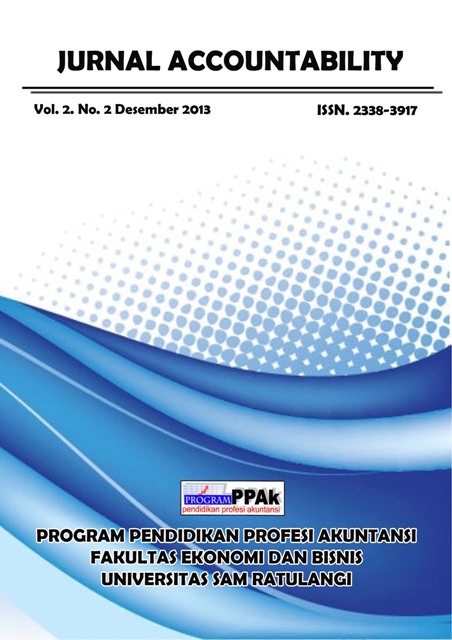DAMPAK UTANG JANGKA PANJANG ATAS PENDAPATAN ENTITAS BISNIS (STUDI KASUS PADA PERUSAHAAN TERDAFTAR DI BURSA EFEK INDONESIA)
Abstract
 ABSTRAK
Aset tetap merupakan hasil dari salah satu kegiatan investasi dalam sebuah entitas bisnis, yang dipertimbangkan tingkat pengembaliannya dalam sebuah periode tertentu. Seringkali sebuah entitas bisnis memperoleh aset tetap tersebut dengan menyertakan unsur pendanaan dari pihak eksternal yang bersifat jangka panjang. Sumber data dalam penelitian ini adalah Bursa Efek Indonesia, dengan sampel sebanyak 253 perusahaan dan metode analisis yang digunakan dalam penelitian ini adalah metode analisis jalur. Hasil penelitian menunjukkan bahwa utang jangka panjang memiliki dampak atas tingkat penjualan, melalui pemanfaatan aset tetap secara optimal.
Kata Kunci : Utang Jangka Panjang, Aset Tetap, Pendapatan
Â
ABSTRACT
Fixed assets are the results of one investment in a business entity, which is considered the level of returns in a given period. Often a business entity acquiring the asset by including an element of funding from external parties who are long-term. Sources of data in this study is the Indonesia Stock Exchange, with a sample of 253 companies and the methods of analysis used in this study is the method of path analysis. The results showed that long-term debt has an impact on the level of sales, through optimal utilization of fixed assets.
Key Word : Long-Term Debt, Fixed Assets, Revenue
Downloads
Published
Issue
Section
License
The articles published in Jurnal Accountability are licensed under Creative Commons Attribution-NonCommercial 4.0 International with authors as copyright holders.
Â

This work is licensed under a Creative Commons Attribution-NonCommercial 4.0 International License.
Â
- Share — copy and redistribute the material in any medium or format.
- Adapt — remix, transform, and build upon the material.
- The licensor cannot revoke these freedoms as long as you follow the license terms.
- Attribution — You must give appropriate credit, provide a link to the license, and indicate if changes were made. You may do so in any reasonable manner, but not in any way that suggests the licensor endorses you or your use.
- NonCommercial — You may not use the material for commercial purposes.
- No additional restrictions — You may not apply legal terms or technological measures that legally restrict others from doing anything the license permits.
- You do not have to comply with the license for elements of the material in the public domain or where your use is permitted by an applicable exception or limitation.
- No warranties are given. The license may not give you all of the permissions necessary for your intended use. For example, other rights such as publicity, privacy, or moral rights may limit how you use the material.


